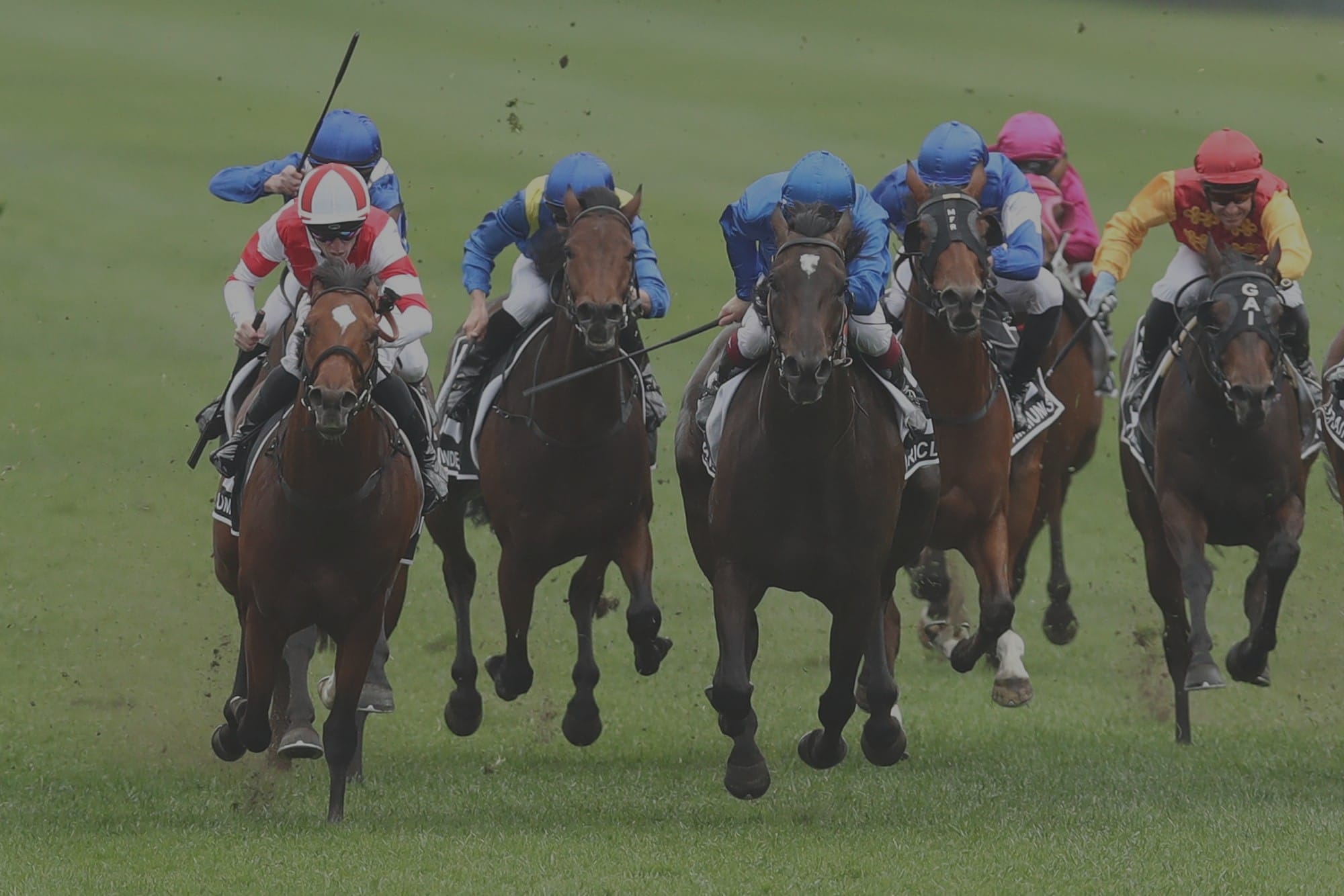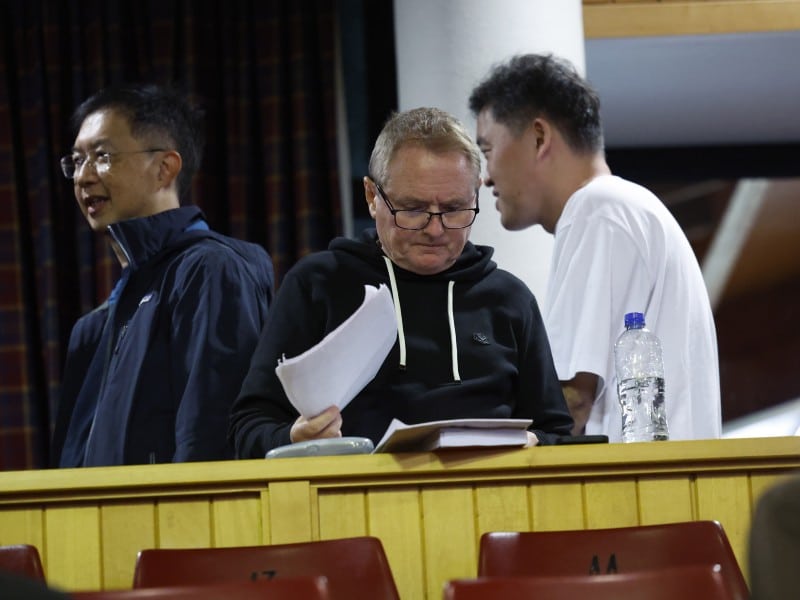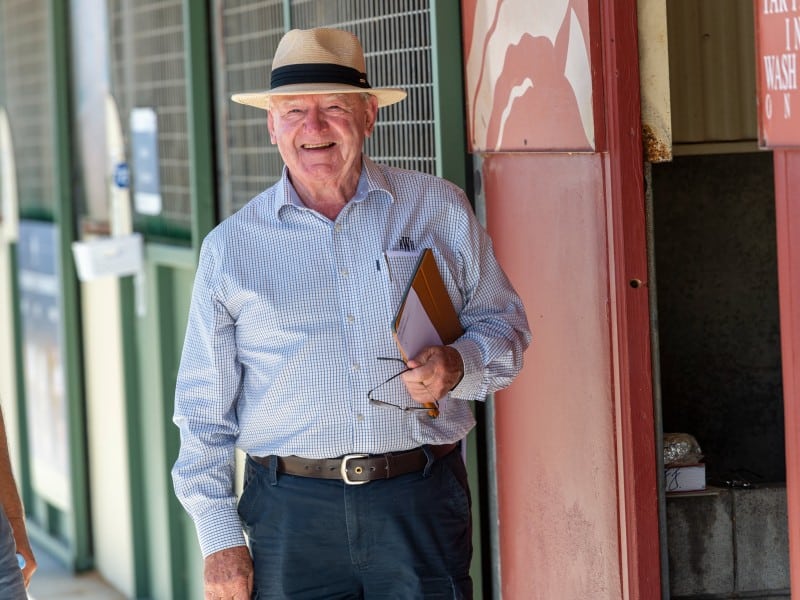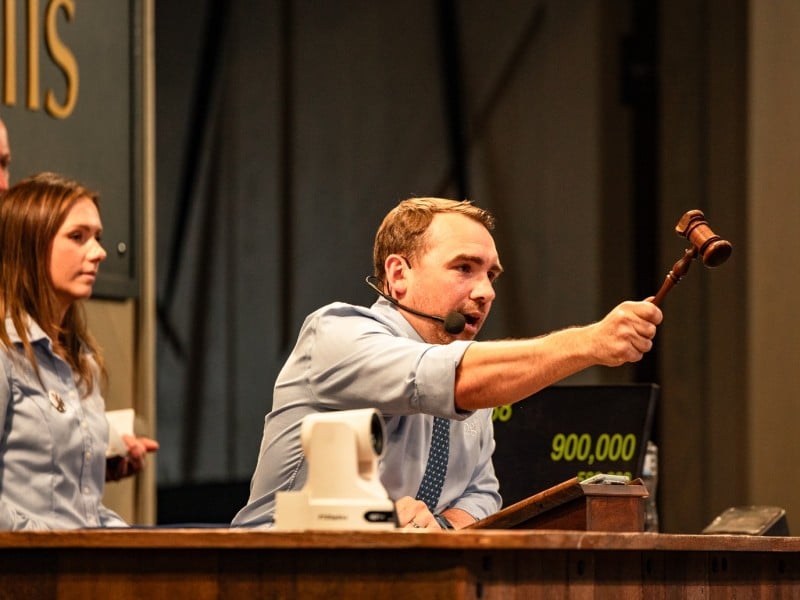‘Playing chess with nature’ – How the Aga Khan changed the global thoroughbred industry
The Aga Khan is being remembered as one of Europe’s great owner-breeders and one of the last bastions of an era which transformed global racing.
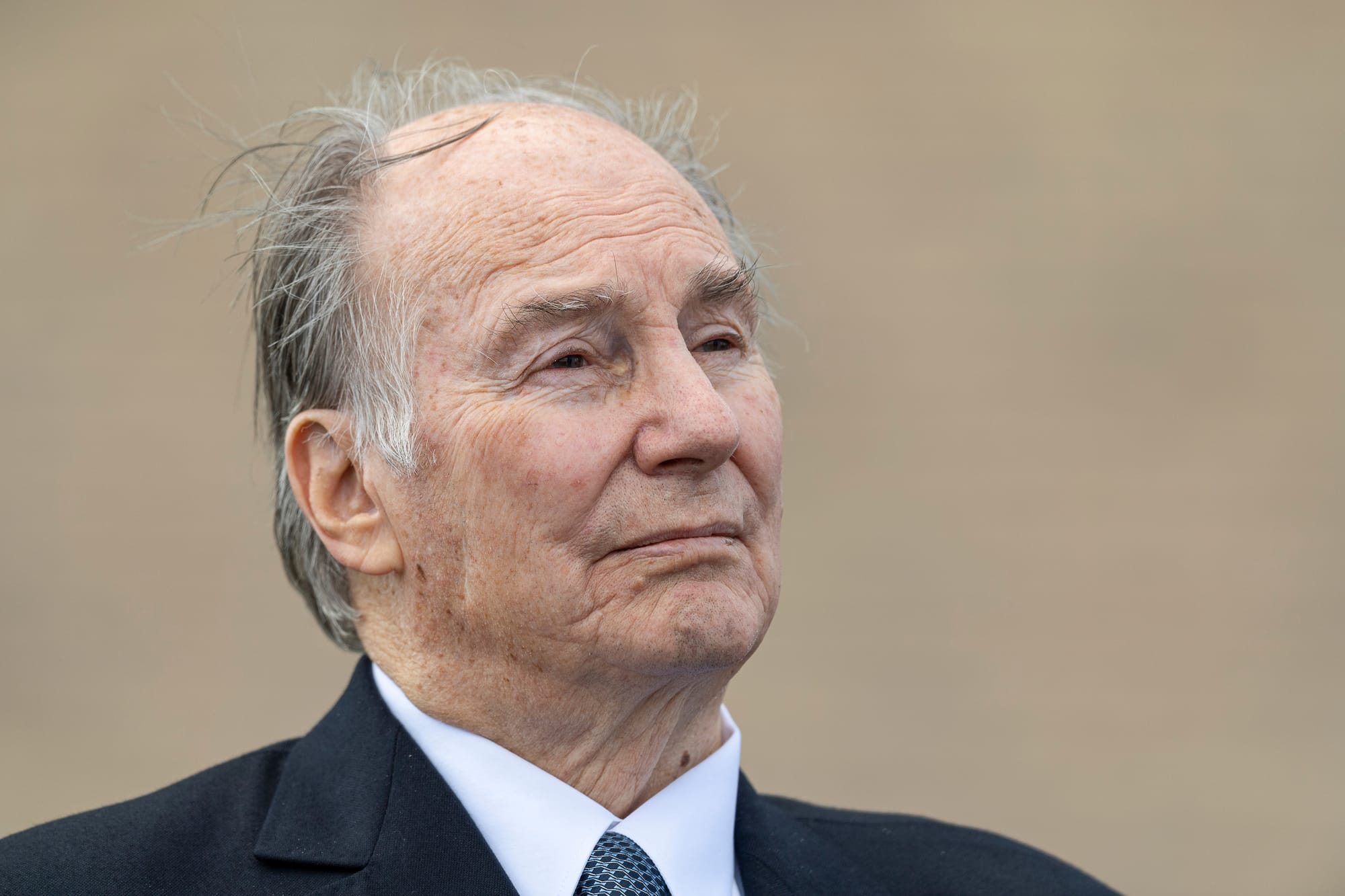
His death this week, aged 88, ends an involvement with racing and breeding which spans decades, providing him with a stream of Classic winners and an association with some of the sport’s greatest horses.
He won four Prix de l’Arc de Triomphes respectively with champion mare Zarkava, Sinndar, Dalakhani and his first, 1982 winner Akiyda.
The prominent owner-breeder, whose legacy will live on through the international Stud Book through the deeds of the Aga Khan Studs stallions and broodmare band, was also associated with Shergar, the Epsom and Irish Derby winner.
In one of the most famous racing stories of the 20th century, the champion was stolen from Ballymany Stud in Ireland in 1983. A £2 million ransom was demanded, but never paid and the horse was never found.
The Aga Khan’s influence in Australia, unlike some of his contemporaries such as Sheikh Hamdan, wasn’t as it was in Europe but it was still significant.
His Aga Khan stallions include champion French stallion Siyouni, the sire of Australian Group 1 winner Amelia’s Jewel and Coolmore shuttler St Mark’s Basilica, as well as Sea The Stars.
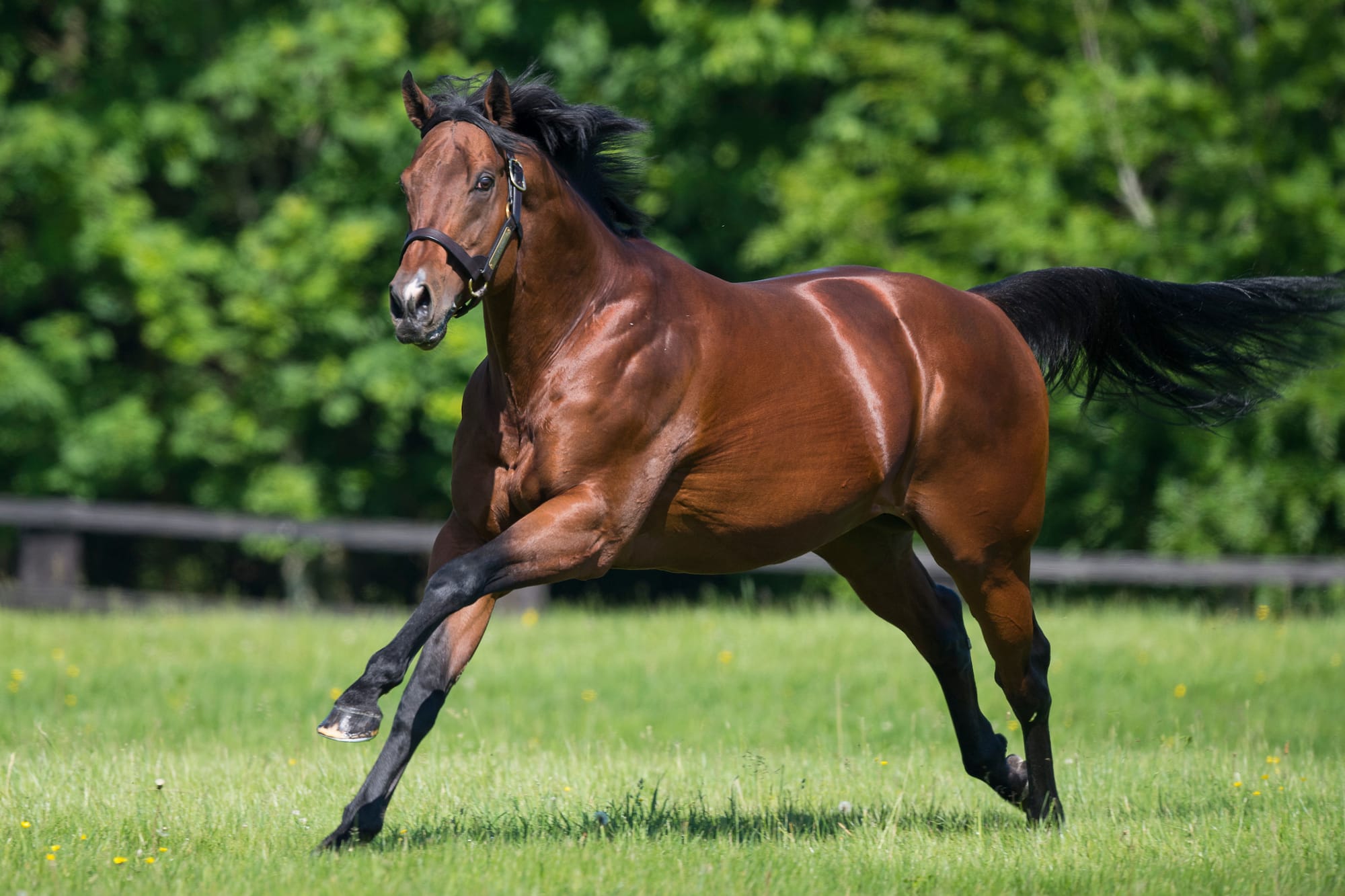
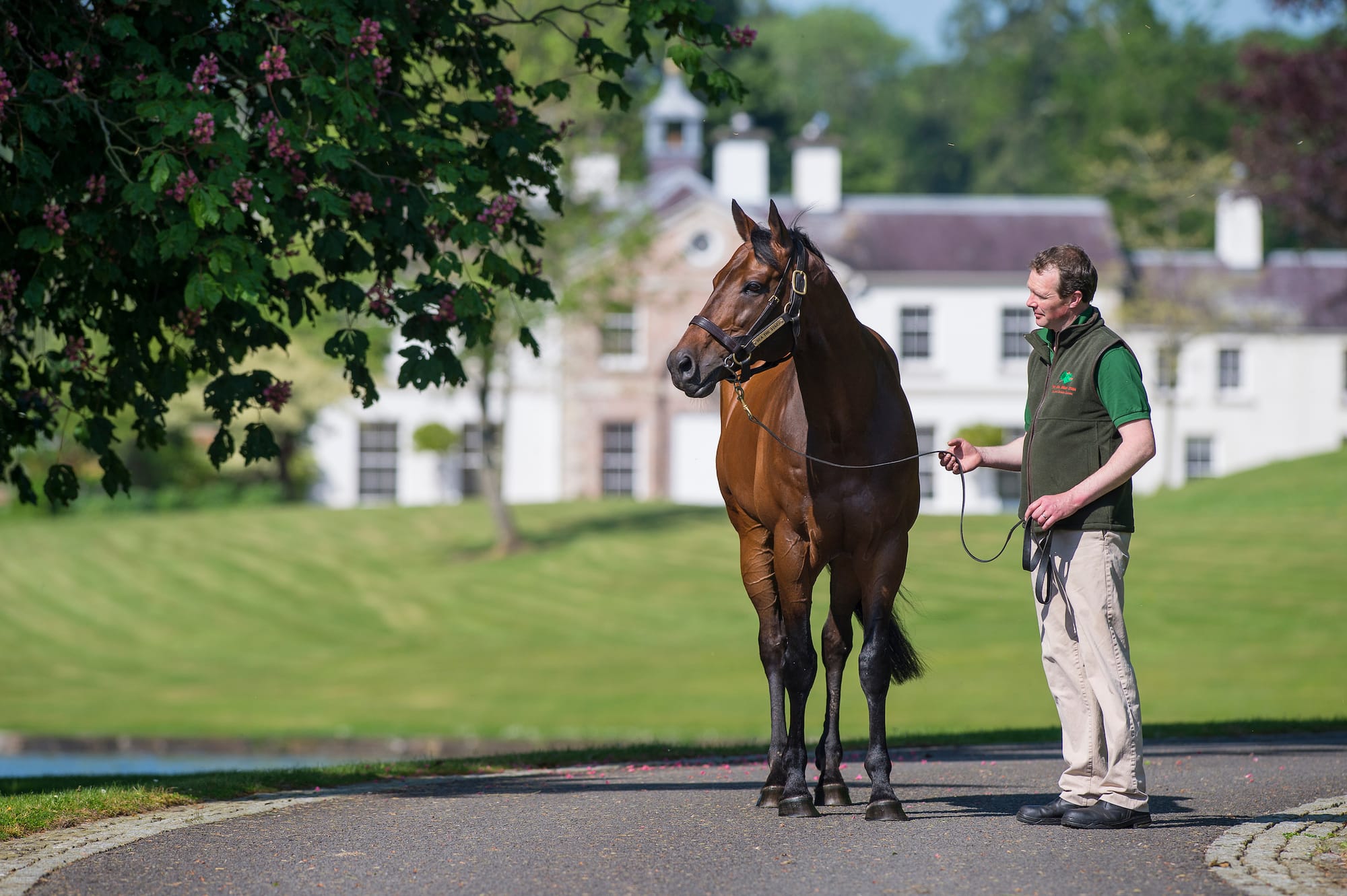
Siyouni and Sea The Stars are two of the Aga Khan’s best stallions. (Photo: Bronwen Healy – The Image is Everything)
His attempt to win the 2013 Melbourne Cup, with Verema, raced in his famous green and red colours, ended tragically after she was euthanised. In 2022, Gold Trip out of a mare bred by the Aga Khan, won Australia’s most famous race, while Karasi, a horse he bred, ran fourth in 2001. He would become an Australian jumps racing hero, winning three Nakayama Grand Jumps in Japan.
The Aga Khan also entered into a joint venture with John Messara and Arrowfield, a partnership which yielded The Autumn Sun.
“We discussed with them the possibility of Aga Khan Studs sending some of their mares down here into a joint venture with us to go to our stallions to see what we could produce,” Messara told The Straight.
“Unlike what they do in Europe where they keep all their stock to race, here it would be a commercial transaction and we would sell the produce.
“I suppose the most significant one that we produced and sold and (later) bought back is the big horse (The Autumn Sun), so he certainly left a legacy there, the Aga Khan.”
Arrowfield also shuttled its star Australian stallion, Redoute’s Choice, to the Aga Khan’s stud, Haras de Bonneval in France, for two years at his peak.
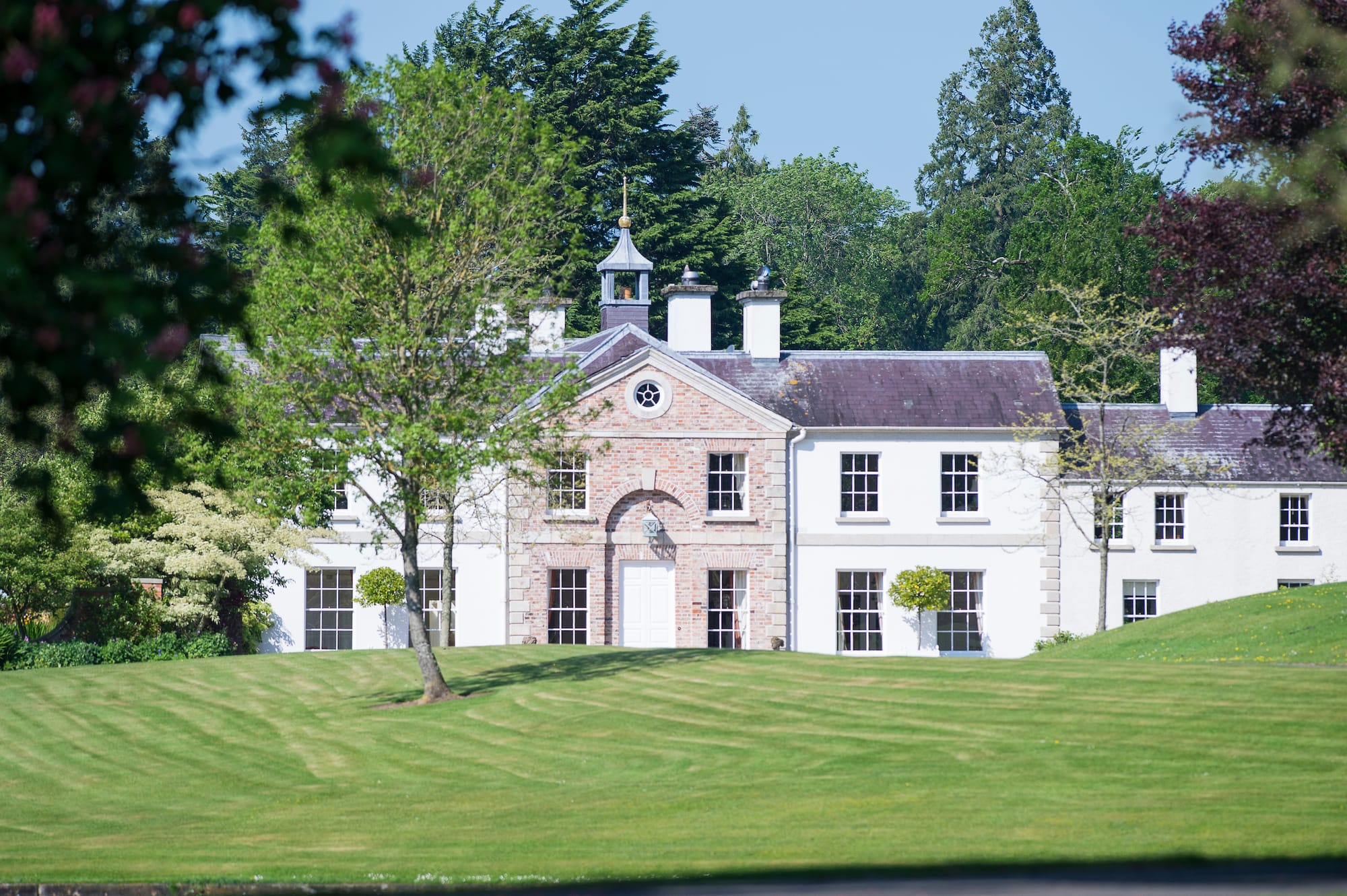
As much as The Aga Khan was a remarkable industry contributor, experiencing 168 Group 1 winners, he also transcended the industry.
Messara, who enjoyed the breeder’s company in the privacy of a box at Chantilly during days at the races in France, described him as a trendsetter.
British singer-songwriter Peter Sarstedt also mentioned The Aga Khan in the 1969 tune Where Do You Got To (My Lovely)?, a number one hit song that also references The Rolling Stones, Picasso and the monokini, credited as the first topless swimsuit.
Irish bloodstock agent Johnny McKeever, who is currently on his annual Australasian sales sojourn, grew up on the Aga Khan’s Sheshoon Stud at the Curragh in Ireland where his father rented the main residence for 15 to 20 years.
“The thing from a bloodstock agent’s perspective about him is, it was the bloodlines that his grandfather, his father and he combined that created; they’re all the families that we all go to when we’re trying to find a new broodmare really,” McKeever says.
“If you can get stock that’s related to some of his key old families, they always seem to go well. I’ve also encouraged quite a lot of Australians to go looking in that direction, too, and over the years some people have.
“I just believe that they’re superior genetic female lines that are worth cultivating.”
French racing journalist Adrien Cugnasse was struck by the Aga Khan’s passion for the wider racing industry as well as the horses themselves.
He committed to preserving Chantilly as a racecourse and training facility by funding the refurbishment of and renovation of the facilities two decades ago when there was a chance they could be lost.
“I think in France there is a real devotion around the Aga Khan from many small breeders,” Cugnasse said.
“Their dream is to buy an Aga Khan mare, even if she’s good or not, but all they want is to visit the stud and send the mare there.”
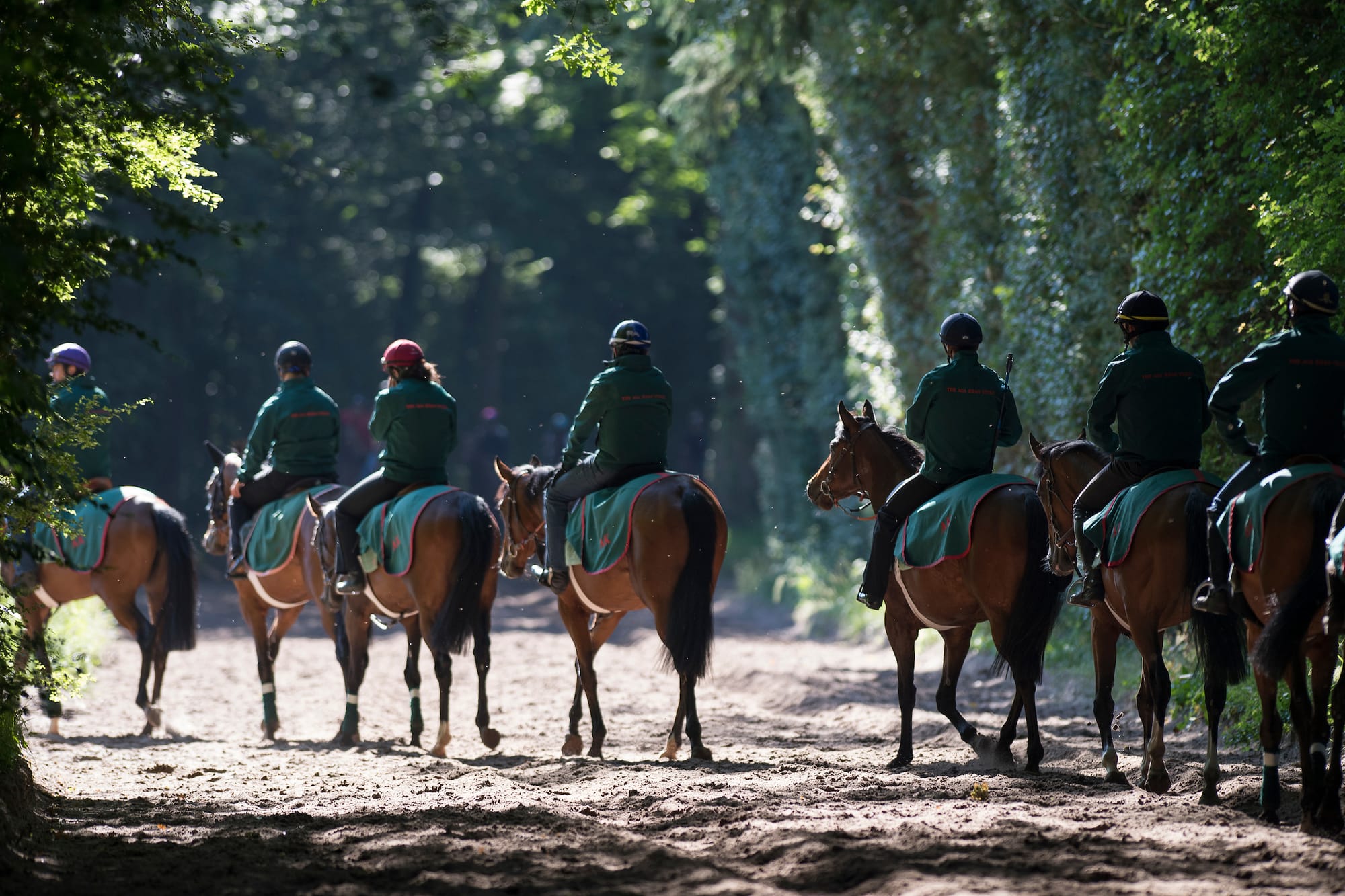
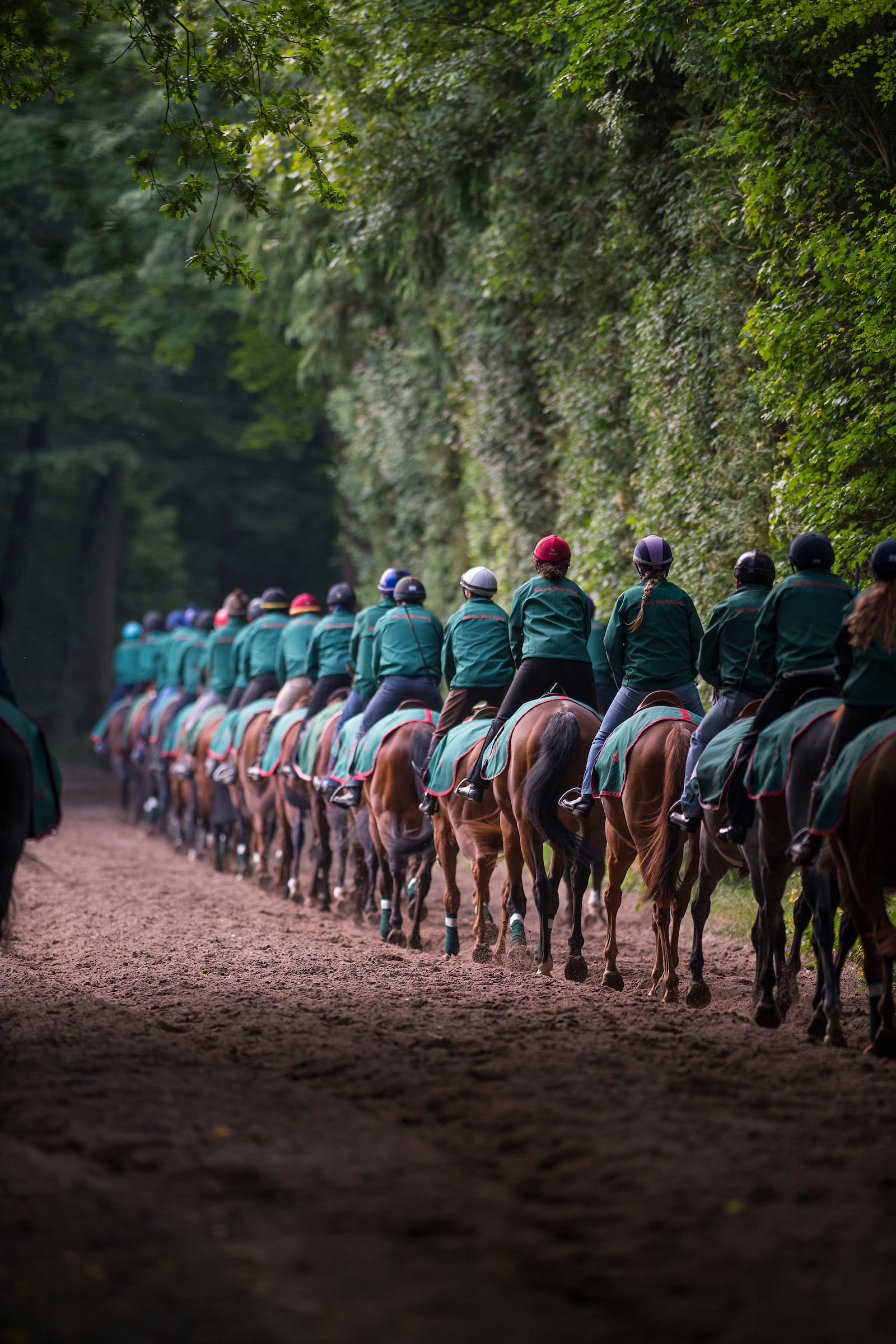
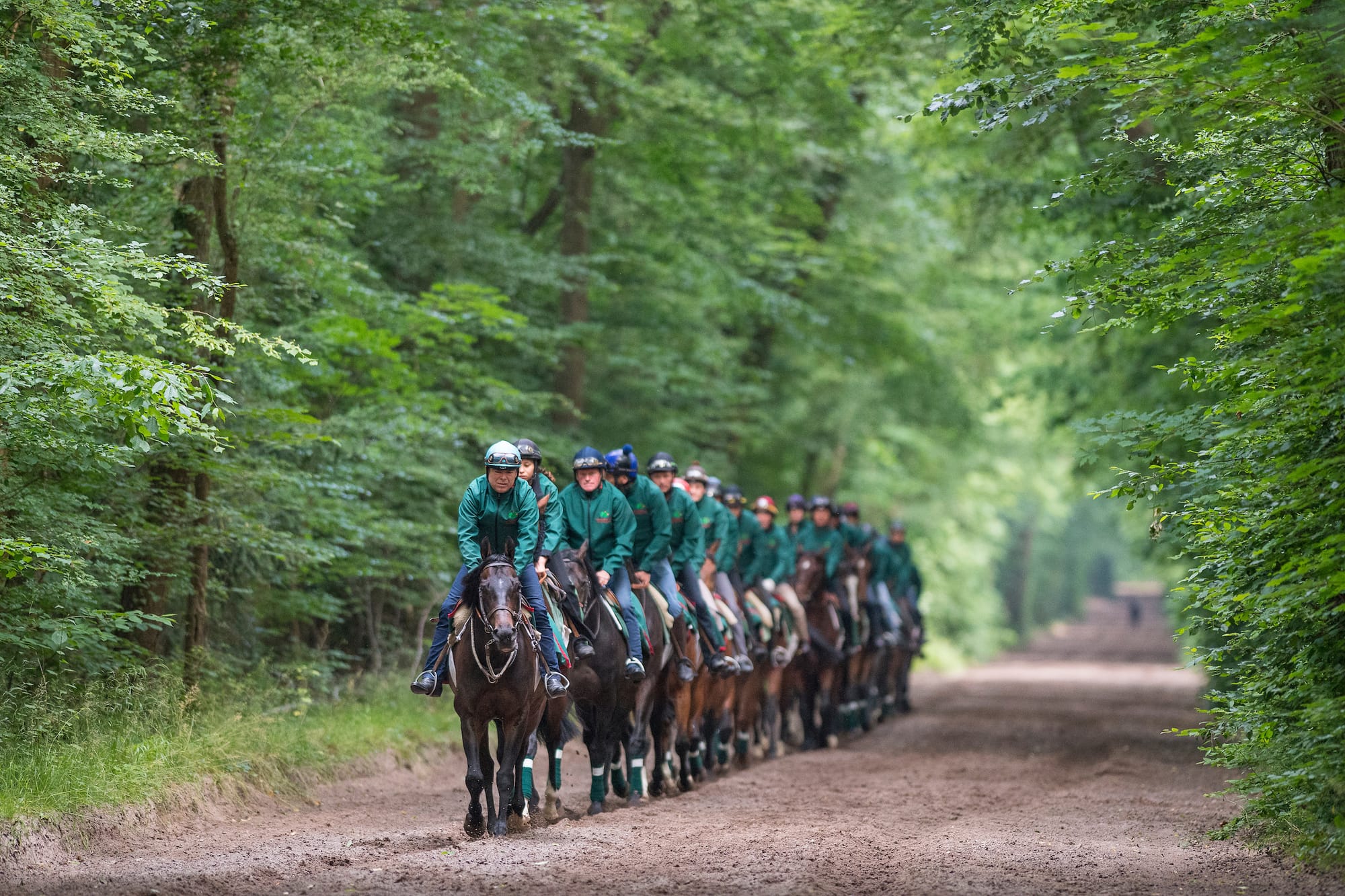
The Aga Khan’s racing team in morning trackwork at Chantilly. (Photo: Bronwen Healy – The Image is Everything)
The Aga Khan also held strong views about breeding horses and the industry as a whole.
In a 1991 Australian Financial Review article, the Aga Khan was quoted, in reference to Godolphin founder Sheikh Mohammed Al Maktoum and his Middle Eastern counterparts’ 1980s spending sprees, saying: “It is difficult to compete with people who do not seem to be inspired by the profit motive.”
In truth, the racing industry globally has recently lost a number of huge investors whose passion for the sport outweighed the need for their balance sheet to necessarily finish in the black.
British farm Juddmonte Stud, home to champion European sire and freak racehorse Frankel, lost its founder Prince Khalid bin Abdullah of Saudi Arabia in 2021.
That same year, Shadwell’s Sheikh Hamdan, whose racing interests took in both hemispheres and many continents, died at the age of 75.
Hamdan, among many others, raced Zabeel who would go on to be a champion sire in New Zealand and Australia from his Cambridge Stud home under the management of the late Sir Patrick Hogan.
More recently, Malaysian billionaire Ananda Krishnan, whose estate owns Hunter Valley stallion operation Kia Ora Stud and is also a shareholder in rival Hunter farm Vinery, died last November.
Kia Ora has continued to run as normal by buying and selling yearlings so far in 2025, while Juddmonte has also been operational since Prince Khalid bin Abdullah’s death.
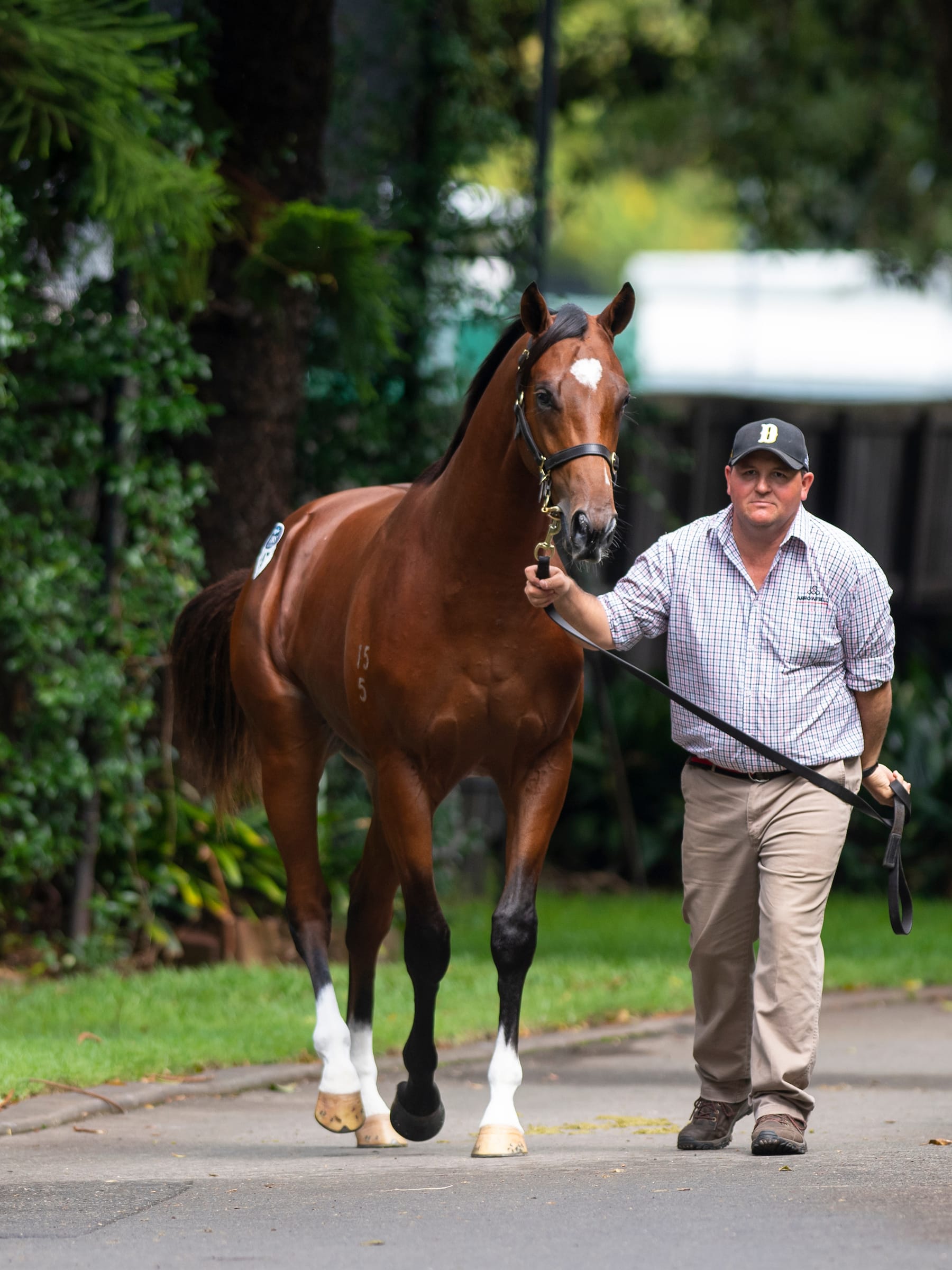
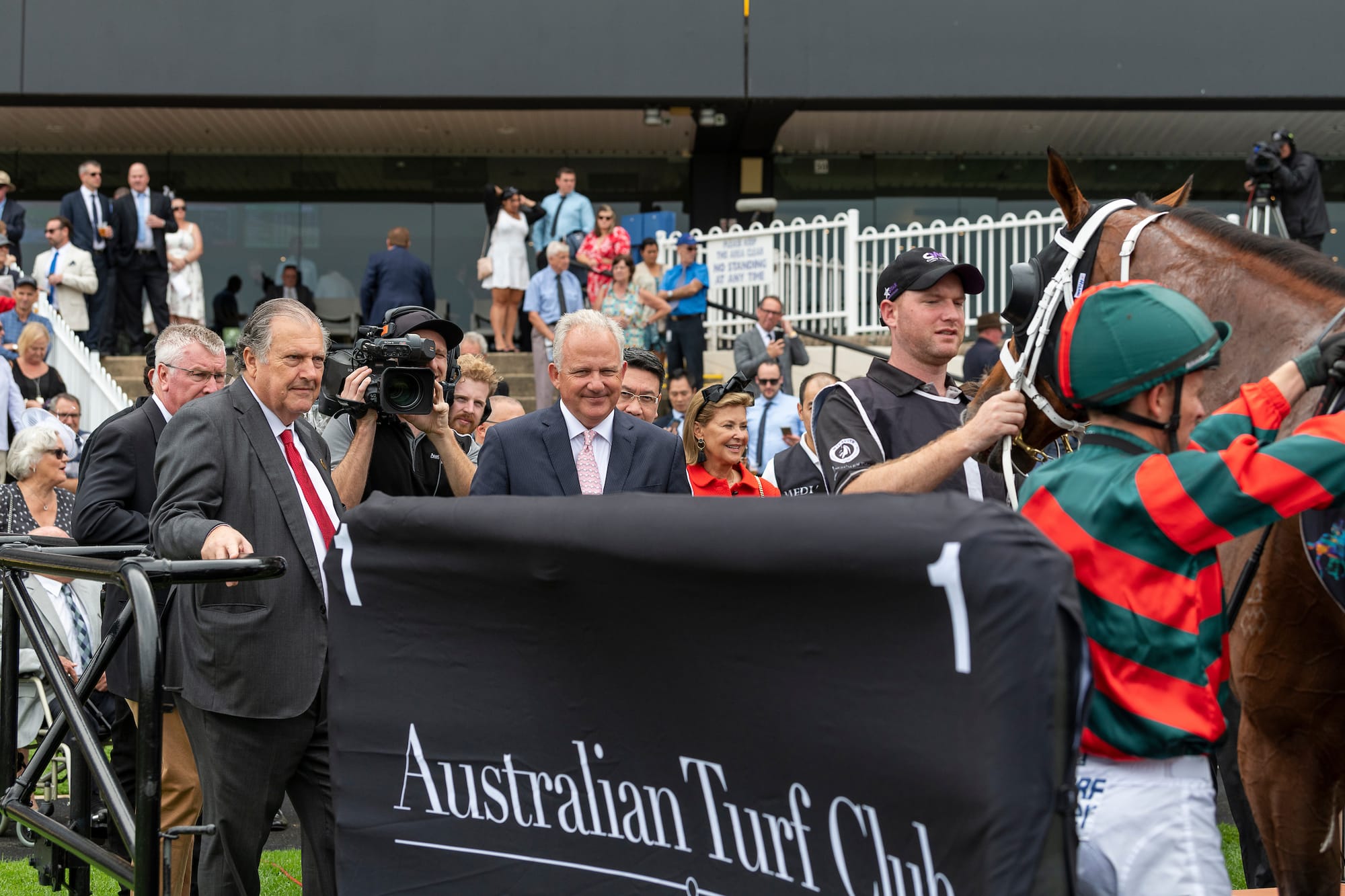
The Autumn Sun, the champion Arrowfield co-bred with the Aga Khan, as a yearling and being inspected by John Messara after a racetrack win. (Photo: (Photo: Bronwen Healy – The Image is Everything)
Cugnasse says the Aga Khan’s daughter Zahra shares her father’s passion for racing and breeding.
“It was clear and obvious that he was really fond of and passionate about racing and his daughter has really inherited from that. I would say, really, really, really passionate about racing,” the journalist says.
“I think there is a father-daughter link there because they both share this real passion for racing and breeding also. And what they like about it is taking a long-term view and developing families.
“They call it playing chess with nature.”
Messara, whose son Paul is overseeing Arrowfield, says generational change is just a natural phase of the global thoroughbred industry.
“New people seem to pop up and their sons and daughters of those pioneers seem to come through somehow. Life goes on.”

